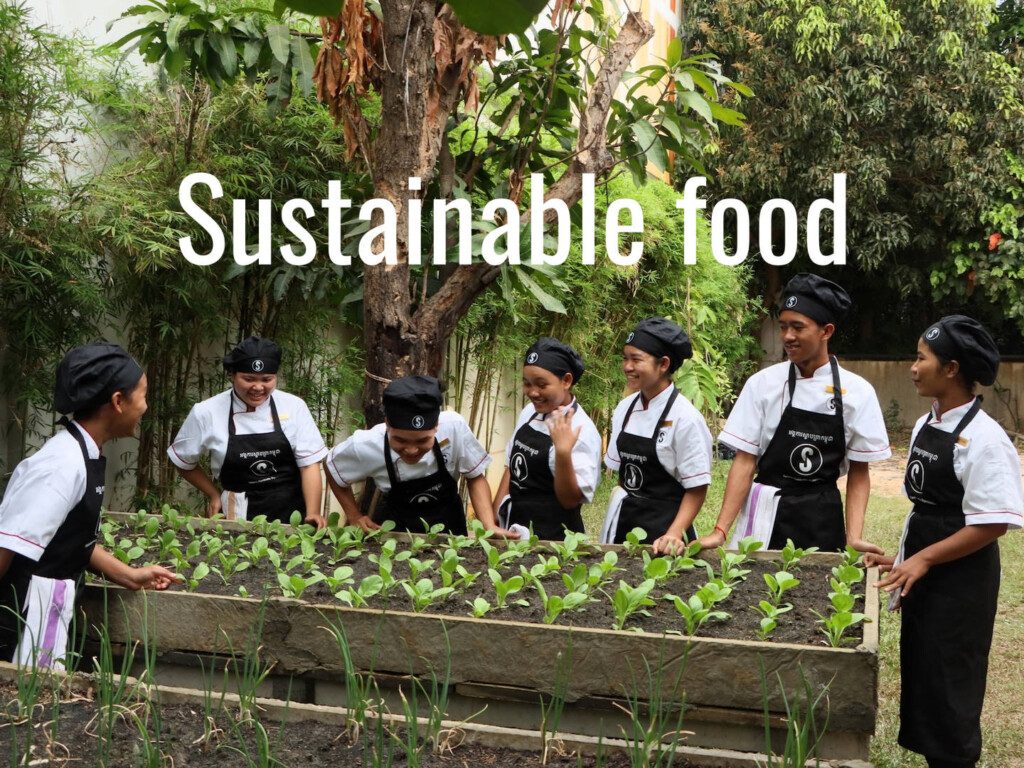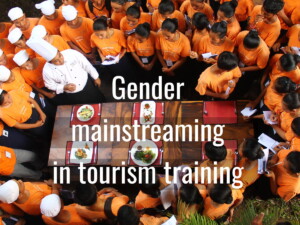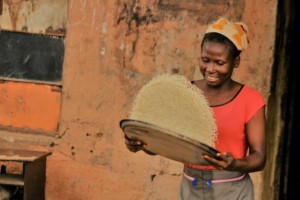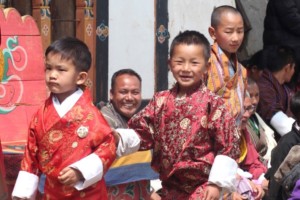How to implement sustainable food systems in Southeast Asian hospitality

Nguyễn Thị Thu Thảo summarises the case studies shared and lessons learned at a recent event about sustainable food systems organised by the Association of Southeast Asian Social Enterprises for Training in Hospitality & Catering (ASSET‑H&C).
ASSET‑H&C is “GT” Insight Partner.
[You too can write a “Good Tourism” Insight.]
Contents
Where to start?
Food waste, if it were a nation, would rank as the third-largest global emitter of greenhouse gases, following only the USA and China (FAO, 2015). To address this issue, understanding sustainable food systems is crucial, as is motivating all stakeholders in the food chain — from farmer to consumer — to minimise waste.
The recent “Sustainable Food System in Hospitality: Where to start?” conference by the Association of Southeast Asian Social Enterprises for Training in Hospitality & Catering (ASSET‑H&C) network brought together pioneers and experts in sustainable tourism and hospitality in Southeast Asia, shedding light on sustainable food systems and inspiring stakeholders toward a greener future.
This “GT” Insight is a summary of what we learned.
Learning is key to sustainable food systems
Collaborative efforts among government bodies, NGOs, and partners are crucial for addressing any sustainability challenge. But education plays a key role.
At our conference, there was unanimous agreement on the need to continuously raise awareness about sustainable practices. That starts by introducing the principles of sustainability and waste management in early childhood and it goes all the way through to updating established industry stakeholders on best practices.
Individual consumers can contribute by considering ethical, social, and ecological factors alongside economic considerations, leading to a reduction in food waste. Communicating and educating consumers is a top priority for successful models.
Don’t miss other “GT” content tagged ‘Education and training’
Responsible food production for economic resilience
Addressing urgent challenges in the food industry requires providing economic incentives at every stage of the food chain.
Marou Faiseurs de Chocolat exemplifies this having built a community of more than 500 cocoa farmers committed to sustainable practices. Marou offers higher prices to these farmers and utilise a transparent tracing app for each of their bean bags.
To motivate farmers to switch to permaculture practices — planting multiple crops for a diversified income and a healthier ecosystem — the company provides direct expert support, seminars, and e‑learning to their farmer community.
They claim this approach not only improves farmers’ livelihoods but also expands the reach of Vietnamese cocoa globally to 32 countries. Their product is one of the favourite gifts that tourists bring home from Vietnam.
Food waste management
Beyond the economic benefits of preventing food waste, there are ethical, social, and ecological considerations.
Pizza 4P’s measured kitchen waste and developed a food waste prevention process within their chain of 32 restaurants in four countries.
Through collaborations with local NGOs, Pizza 4P’s offers its freshest unsold food to underprivileged communities; less fresh food feeds animals. If it is unfit for consumption, the chain’s organic waste is composted to fertilise their partner farms.
Don’t miss other “GT” content tagged ‘Food’
Students of EHT Paul Dubrule, a tourism school in Siem Reap, Cambodia, which serves 350 meals daily, noticed a large quantity of rice waste in the trash can.
The student-led Eco committee came up with the idea of serving much smaller cubic portions of rice with the assurance: “You can take as many rice cubes as you like, but do not leave them uneaten.”
After a year, rice waste had dropped to almost zero in the canteen.
Awareness and involvement of stakeholders
Internal awareness, involvement, and processes are crucial for sustainability within hospitality organisations. For example, EHT Paul Dubrule empowers young apprentices to lead eco-initiatives independently, achieving a Green Flag certification.
Two more examples: Pizza 4P’s engages its kitchen team in waste management procedures and Marou Faiseurs de Chocolat incorporates social and environmental standards into their processes.
To promote sustainable models, businesses must recognise that sustainability is not just a charitable act but an opportunity to enhance business, increase profits, and support local communities.
Despite concerns about resources for sustainable startups and businesses, community support, governmental, and non-profit funds are available for eco-friendly projects.
In conclusion, what we learned at our ASSET‑H&C conference, “Sustainable Food System in Hospitality: Where to start?”, is that the key to sustainable food models in Southeast Asia lies in continuous learning and awareness-building across all stages of the food journey, from responsible production to waste management.
Education, from classroom to workplace, is vital for creating a culture that takes concerted actions for a greener future.
Also see Lauren Kharouni’s “GT” Insight ‘Save money, satisfy guests, & join the fight against food waste’
Training the trainers in food waste prevention
Thanks to LightBlue Consulting and The “Good Tourism” Blog, three tourism trainers and staff from the ASSET‑H&C network have been gifted with an ‘Advanced Course on Food Waste Prevention’ by LightBlue.
“GT” won the LightBlue-sponsored lucky wheel prize at PATA Travel Mart 2023 in New Delhi, India. LightBlue agreed to transfer the prize to ASSET‑H&C (and tripled its value).
Their support helps ASSET‑H&C members prepare aspiring tourism and hospitality workers for a greener, more sustainable future. ASSET‑H&C member schools offer vocational training and education to people from disadvantaged backgrounds.
What do you think?
Share your own thoughts in a comment below. (SIGN IN or REGISTER first. After signing in you will need to refresh this page to see the comments section.)
Or write a “GT” Insight or “GT” Insight Bite of your own. The “Good Tourism” Blog welcomes diversity of opinion and perspective about travel & tourism, because travel & tourism is everyone’s business.
“GT” doesn’t judge. “GT” publishes. “GT” is where free thought travels.
If you think the tourism media landscape is better with “GT” in it, then please …
About the author

Nguyễn Thị Thu Thảo is a member of the co-ordination team for the Association of Southeast Asian Social Enterprises for Training in Hospitality & Catering (ASSET‑H&C). ASSET‑H&C is a regional network of vocational training centres that promote the social and economic inclusion of vulnerable people in Southeast Asia. ASSET‑H&C members work together on their common mission to make a positive impact on the lives of disadvantaged youths and adults.
Thu Thảo has also written for The “GT” Travel Blog.
Featured image (top of post)
Students of Spoons Cambodia discuss where food comes from, and where it goes. Established in 2009, and formerly known as EGBOK, Spoons Cambodia “trains underserved young adults to be the future hospitality leaders of Cambodia”.





